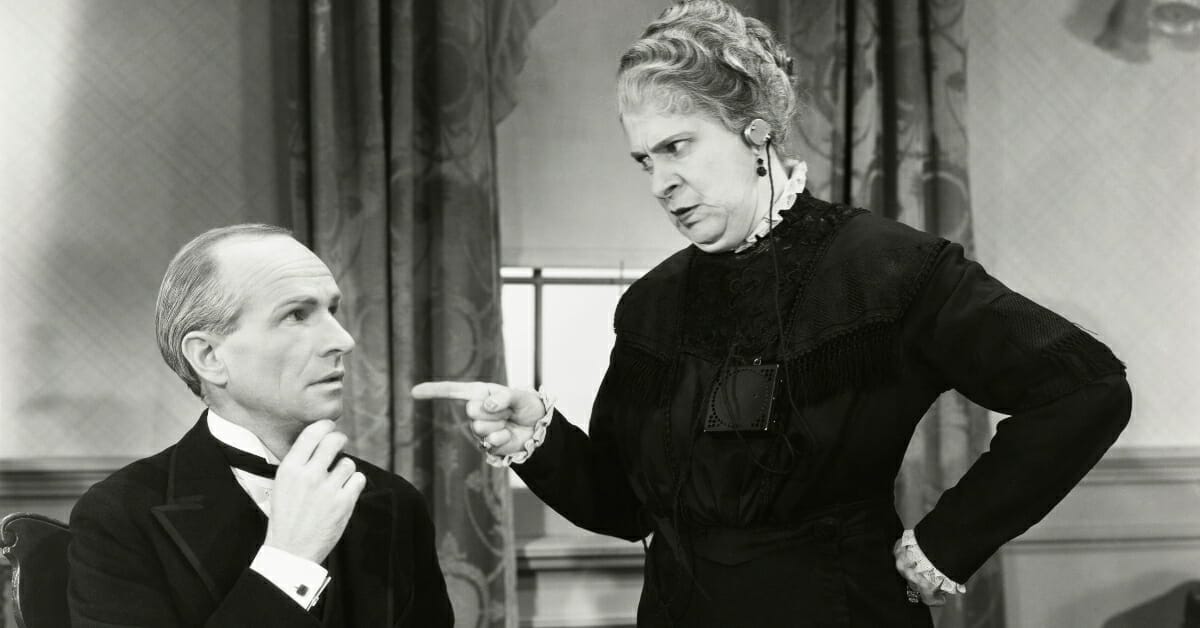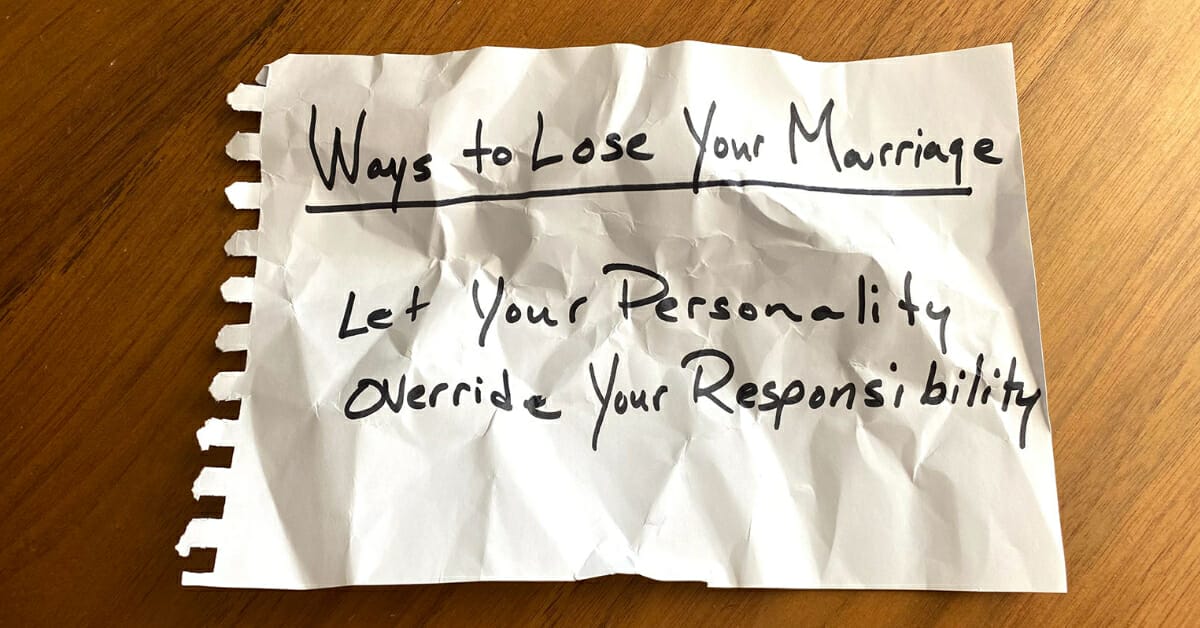I had a daughter who taught me the importance of asking the right questions. When she was a teen, If I asked how she did on an exam, she would say, “Good.” But if I asked her what grade she made on the exam…that was another story! It was important for me to ask the right questions.
It’s true in parenting, but it’s especially true in marriage. If you ask the wrong questions you’ll wind up looking in the wrong places and getting the wrong answers.
What are the Wrong Questions
So often, in marriage counseling, I find that couples are stuck because spouses are asking the wrong questions. Here are some examples of the wrong questions spouses ask:
- Why can’t you see what I need you to do?
- What keeps you from doing what I need you to do?
- Why are you acting that way?
- What’s it going to take to get you to see?
- When are you going to let it go?
- Why can’t you put things where they belong?
- Why are you doing it that way?
- What’s wrong with you?
Why Are These Questions Wrong?
These questions are not wrong in and of themselves. They can be excellent questions when you and your spouse both feel loved and appreciated. But typically we ask questions like these when we’re upset with our spouse.
If you’ll notice, the questions have one thing in common…the word “you.” These questions are all aimed like arrows at the heart and character of your spouse. And they’re usually delivered with a bit of a bite, frustration, or anger. These questions back your spouse into a corner, leaving them with only two options: fight back or knuckle under. And neither of these responses is good for your marriage.
What Are Some Better Questions?
If you’ve been asking the wrong questions, I want to encourage you to start asking better questions. Rather than focusing your questions on your spouse, focus them on yourself by asking yourself things like:
- Why can’t I see what my spouse needs me to do?
- What keeps me from doing what I need to do for my spouse?
- Why am I acting this way?
- What’s it going to take for me to see what I need to see?
- When am I going to let some things go?
- Why do I need things to be where I think they belong?
- Why am I doing things a certain way?
- What are the things that are wrong with me?
Why are These Questions Better?
Before we go any further, let me say, I don’t believe you’re the main problem in your marriage. Nor do I think your spouse is the main problem in your marriage. When there’s a problem in marriage, both spouses usually contribute to the problem. It may not be a 50/50 split. Sometimes it may be 60/40 or 80/20. But however it shakes out, you still have some contribution. And your contribution is the only thing you have any direct control over.
I can hear someone thinking, “That’s not fair! They get to keep doing what they’re doing while I’m the one who has to make all the changes?”
Not necessarily. First of all, “fair” is not always a realistic approach to things. I use to tell my children things like, “the world’s not fair,” and “fair is that place with Ferris wheels and cotton candy.” Sometimes in life, to get where you want to be, you have to focus on doing what you need to do, even when things don’t seem fair.
Secondly, when you change yourself, it can indirectly and positively affect your spouse. Maybe in doing what you should do, even when it’s not fair, your spouse will feel more loved, more appreciated, more seen, or more heard. And as a result, it will be easier for them to feel safe, let down their guard, and love your back.
A Final Word…
When you stop asking the wrong questions and start asking the right questions, it can be life-changing for your marriage. Can I guarantee that doing this will turn your marriage around? No. Marriage is a dance between two people, and sometimes your dance partner is too set in their hurtful ways to change. But, if asking the wrong questions is not getting you anywhere, It won’t hurt to try asking better questions.











